Introduction
In a world where body image often dictates self-worth, understanding the complexities surrounding terms like "chubby woman belly" is crucial. This descriptor not only reflects physical characteristics but also embodies cultural perceptions and societal pressures that can deeply impact mental and emotional well-being.
As individuals navigate these challenges, the conversation around body positivity and health becomes increasingly vital. By exploring the multifaceted causes of excess belly fat and its associated health risks, organizations can empower their teams to make informed lifestyle choices.
This article delves into effective strategies for managing abdominal fat while fostering an inclusive environment that celebrates diverse body types. With a focus on holistic health, it aims to inspire HR Benefits Managers to take actionable steps toward promoting wellness and acceptance within their workplaces.
Defining the Chubby Woman Belly: What It Means
The term 'chubby woman belly' describes a fuller, rounder abdominal area often linked to increased levels of fat. However, this descriptor is not merely a physical characteristic; it carries a spectrum of implications shaped by cultural beauty standards and societal expectations. It's essential to acknowledge that perceptions of what constitutes 'chubby' can differ significantly among individuals.
Both genders experience dissatisfaction with their physical appearance due to societal standards, leading to distress and unhealthy behaviors. For instance, only 11% of overweight Spanish girls expressed a desire for their figure to remain the same, highlighting the pervasive influence of societal norms on self-perception. Furthermore, a study of NCAA student-athletes revealed that:
- 68% of men felt they had a positive physique
- 45% of women felt they had a positive physique
- 53% of men were satisfied with their weight
- 35% of women were satisfied with their weight
By promoting an understanding of this term, we can ignite more inclusive discussions about appearance and wellness, encouraging the dismantling of stereotypes. Embracing diverse body shapes allows us to shift the narrative towards acceptance and well-being, ultimately motivating us to create environments where all body types are celebrated and valued.
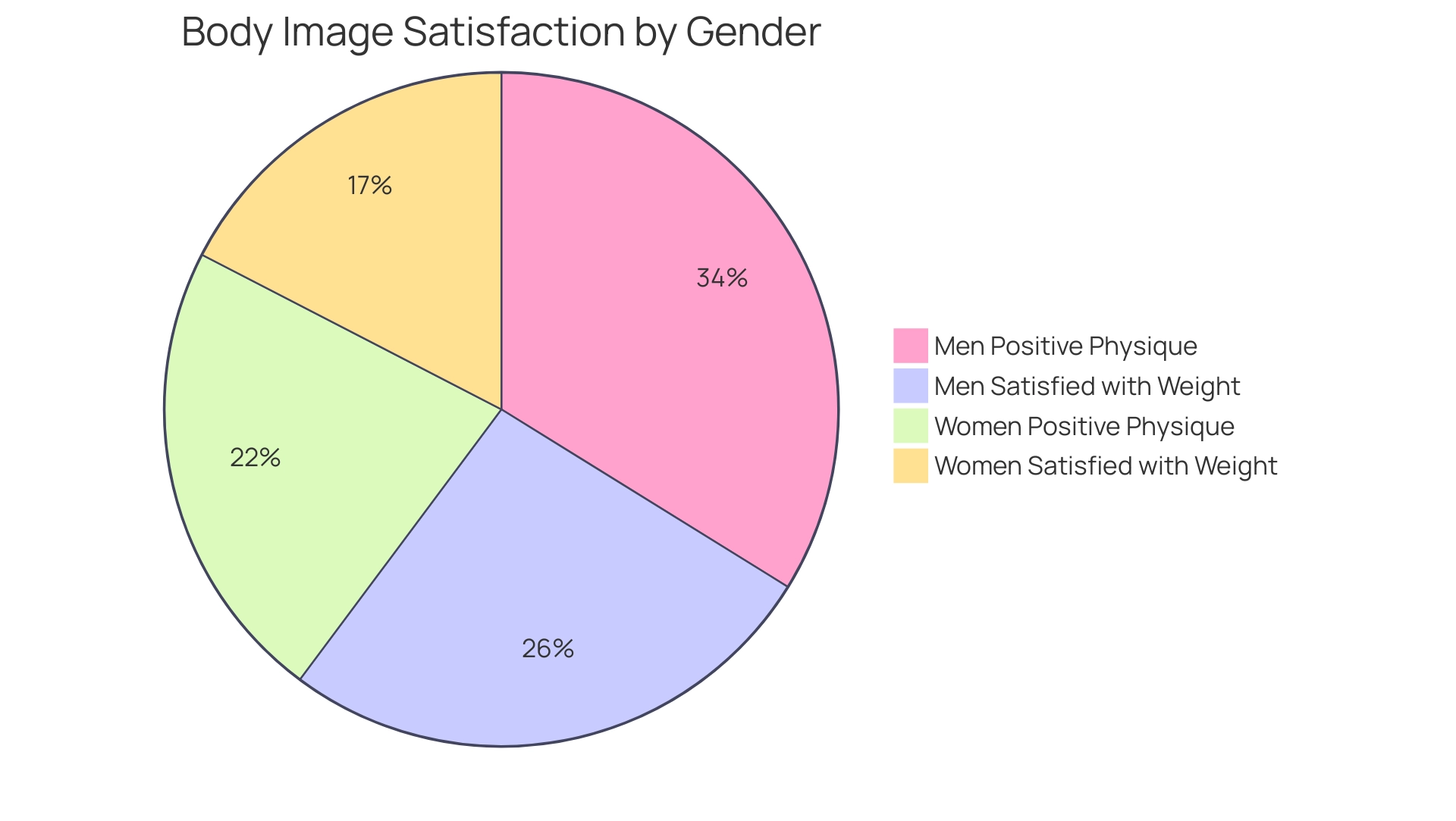
Understanding the Causes of a Chubby Belly
The development of a chubby woman belly can be attributed to a combination of factors, including dietary choices, physical inactivity, hormonal changes, and stress. Research highlights that high consumption of processed foods and sugars is a significant contributor to abdominal fat accumulation, with statistics revealing that 7.9% of Hispanic adults experience severe obesity, illustrating the urgent need for dietary awareness. As Cheryl D. Fryar from the National Center for Health Statistics notes, "Understanding the relationship between dietary choices and obesity is crucial for public welfare initiatives."
Additionally, hormonal fluctuations, particularly during menopause, can significantly alter fat distribution in women, resulting in a chubby woman belly. Stress, often resulting in emotional eating, contributes to this issue, particularly affecting a chubby woman belly and promoting weight gain. Recent studies on dietary choices, such as the randomized trial assessing the impact of medium-chain triglycerides (MCT) on substrate metabolism during low-intensity activity, show promising results.
This trial found that consumption of MCT led to increased fat oxidation, suggesting potential anti-obesogenic effects despite no change in total energy expenditure. Furthermore, the World Health Organization addresses the implications of high sugar intake on oral well-being, emphasizing the importance of dietary awareness in preventing obesity-related conditions. Understanding these multifaceted causes is crucial for taking proactive steps towards effective solutions, ultimately encouraging HR Benefits Managers to foster an environment that supports healthy lifestyle choices among their teams.
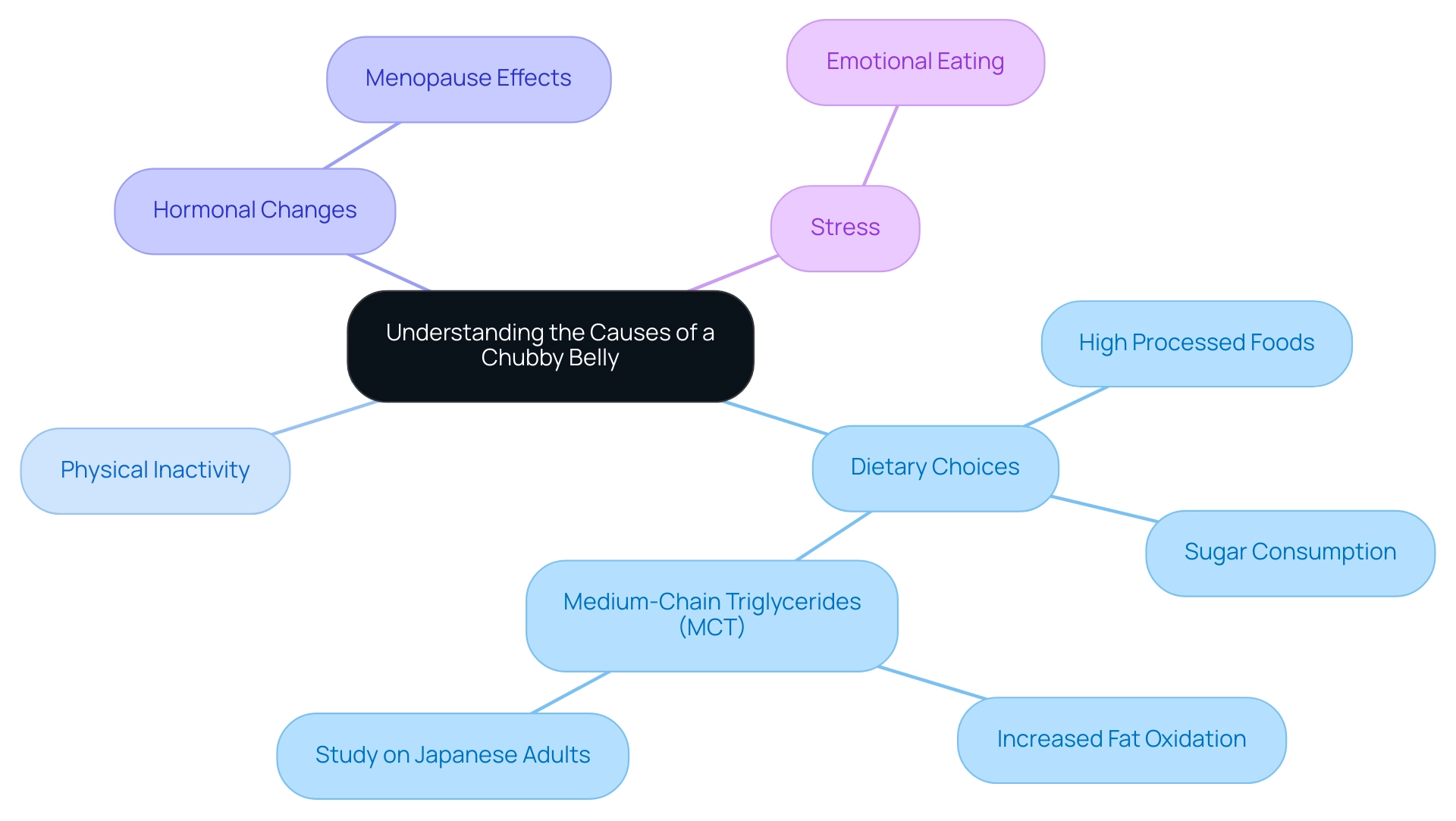
Health Implications of Excess Belly Fat
Excess belly fat, especially in a chubby woman belly, presents considerable risks to well-being, including a higher chance of developing cardiovascular disease, diabetes, and metabolic syndrome. Research highlights the dangers of visceral fat, which can lead to a chubby woman belly, as it accumulates around vital organs and is particularly detrimental to overall health. Recent findings emphasize that while maintaining a healthy body mass is essential, focusing on the chubby woman belly is equally critical.
As noted by leading researchers, 'Although maintaining a healthy body mass should continue to be a cornerstone in the prevention of chronic diseases and premature death, maintaining a healthy waist size should also be an important goal.' It is important to highlight that the study emphasizes the overall risks associated with central adiposity, including the risks linked to a chubby woman belly, not just gender differences. For women, recognizing these risks can become a powerful motivator to embrace healthier lifestyle choices.
The positive impact of losing excess mass extends beyond physical health—improvements in body image and self-esteem can lead to a reduction in symptoms of depression. Notably, women who achieve a modest loss of just 5% may enhance their chances of regular menstrual cycles and ovulation, significantly improving their fertility outcomes, as evidenced by the case study on 'Infertility and Obesity,' which demonstrates the link between obesity and fertility issues. To support these transformative goals, our comprehensive wellness coaching app offers personalized workouts and nutrition guidance, ensuring that users have the tools they need to succeed.
With features like daily programming that keeps users on track with their goals and video demonstrations for visual learners, along with direct messaging with coaches for personalized support and a vibrant community for motivation, HR Benefits Managers can inspire their teams to take charge of their wellness and well-being, prioritizing not just weight loss but overall wellness.
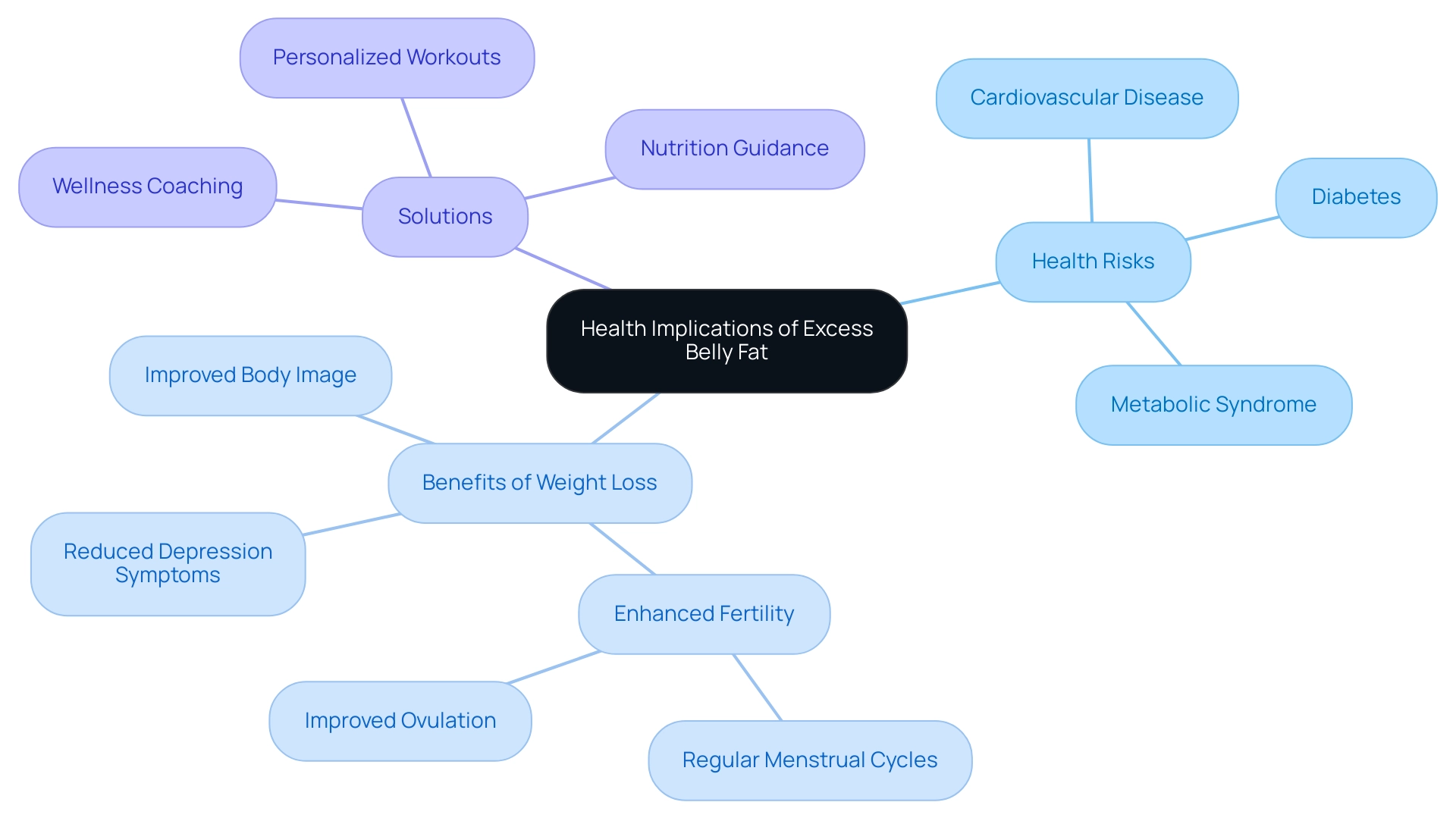
Effective Solutions for Managing a Chubby Belly
Effectively managing a chubby woman belly requires a holistic approach that combines dietary changes, regular exercise, and lifestyle adjustments—all integral to Foresight Health Coaching's comprehensive health programs. Recent trends emphasize the importance of incorporating whole foods—such as fruits, vegetables, and lean proteins—into daily meals. For instance, researchers from Norway examined data on 2,068 parent-child trios and found that total energy expenditure was inversely related to visceral adipose tissue (VAT) accumulation, underscoring the significance of physical activity in managing fat.
Foresight’s tailored fitness coaching incorporates these insights, offering personalized plans that guide individuals in making healthier choices. Additionally, studies indicate that increased soluble fiber intake can significantly decrease VAT accumulation, particularly in high-risk populations. A balanced exercise routine that includes both aerobic activities and strength training is essential for burning calories and building lean muscle, which can help reduce a chubby woman belly and enhance overall body composition.
Fitness experts advocate for vigorous physical activity as a pivotal component of any body management strategy, which is particularly beneficial for individuals with a chubby woman belly. Moreover, the kind of fats ingested can affect overall body mass and well-being; substituting unhealthy fats with unsaturated fats may enhance body composition and energy expenditure. Mindfulness practices, such as yoga and meditation, offer additional benefits by promoting stress management, crucial in supporting weight loss efforts.
While cosmetic procedures like liposuction can be considered, it is vital to consult with a healthcare provider for informed decisions. By embracing these strategies, individuals can take significant steps toward achieving their wellness goals, fostering a positive self-image, and making empowered choices that resonate with Foresight’s mission of promoting well-being in the workplace. Foresight Health Coaching also provides corporate memberships that feature in-person wellness talks, comprehensive pantry services, and access to our wellness app, which supports clients in their journeys.
These features ensure that both individual and corporate clients receive the holistic support they need to thrive.
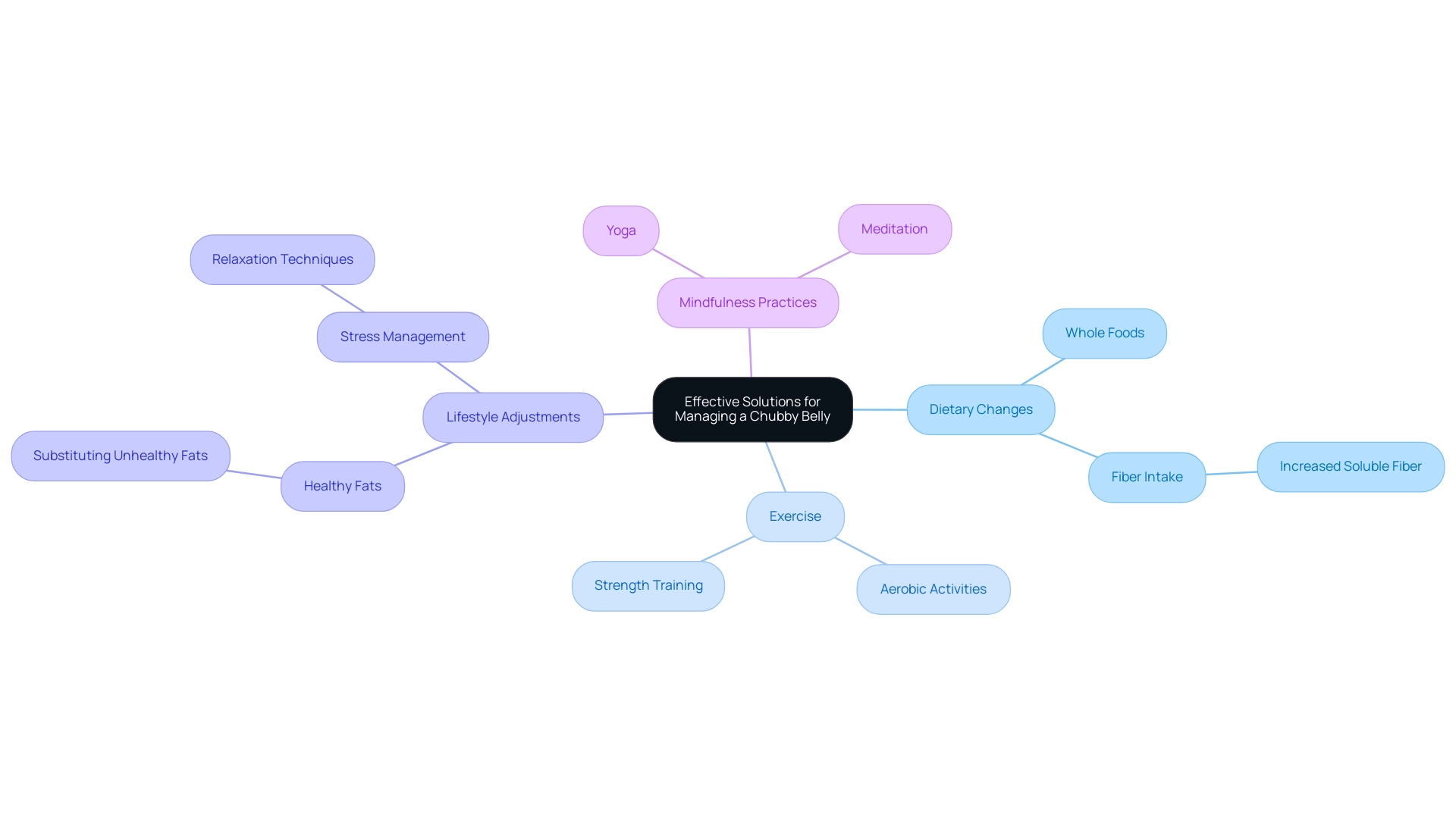
Embracing Body Positivity: A Holistic Approach to Health
Adopting positivity regarding one's physique is a transformative journey that requires the acknowledgment and acceptance of all shapes, highlighting that well-being goes beyond simple physical appearance. A holistic approach to wellness nurtures not only physical well-being but also mental and emotional well-being, both of which are crucial for overall wellness. Recent studies, including one published in "Preventive Medicine," have shown that employees who engage in regular exercise report higher motivation at work, lower fatigue, and reduced stress levels, highlighting the connection between physical activity and emotional well-being.
Furthermore, findings from the NCAA Student-Athlete Health and Wellness Study reveal that while 68% of men and 45% of women feel positively about their physiques, a significant portion still struggles with self-image—53% of men and 35% of women express dissatisfaction with their weight. This disparity underscores the importance of fostering a positive self-image and engaging in self-care practices to enhance quality of life. Alarmingly, adults who turn to anabolic steroids for appearance purposes are 3-4 times more likely to encounter depression and anxiety, clearly illustrating the profound impact of self-image on mental well-being.
Motivating individuals to embrace their selves while seeking wellness in a balanced and compassionate way is a crucial step in this movement. HR Benefits Managers can play a pivotal role in promoting positivity and well-being. By implementing workplace exercise programs and wellness partnerships, they can cultivate an inclusive culture that promotes holistic health approaches.
As emphasized in the NCAA research, 'It is vital for student-athletes to feel assured in themselves to perform at their best.' Additionally, studies indicate that workplace exercise programs not only enhance employee motivation but also lead to a reduction in absenteeism and presenteeism, fostering a healthier, more engaged, and productive workforce. By championing body positivity within teams and sharing personal journeys, such as those of individuals who have overcome challenges through fitness, HR Benefits Managers can inspire others to embrace their own transformations.
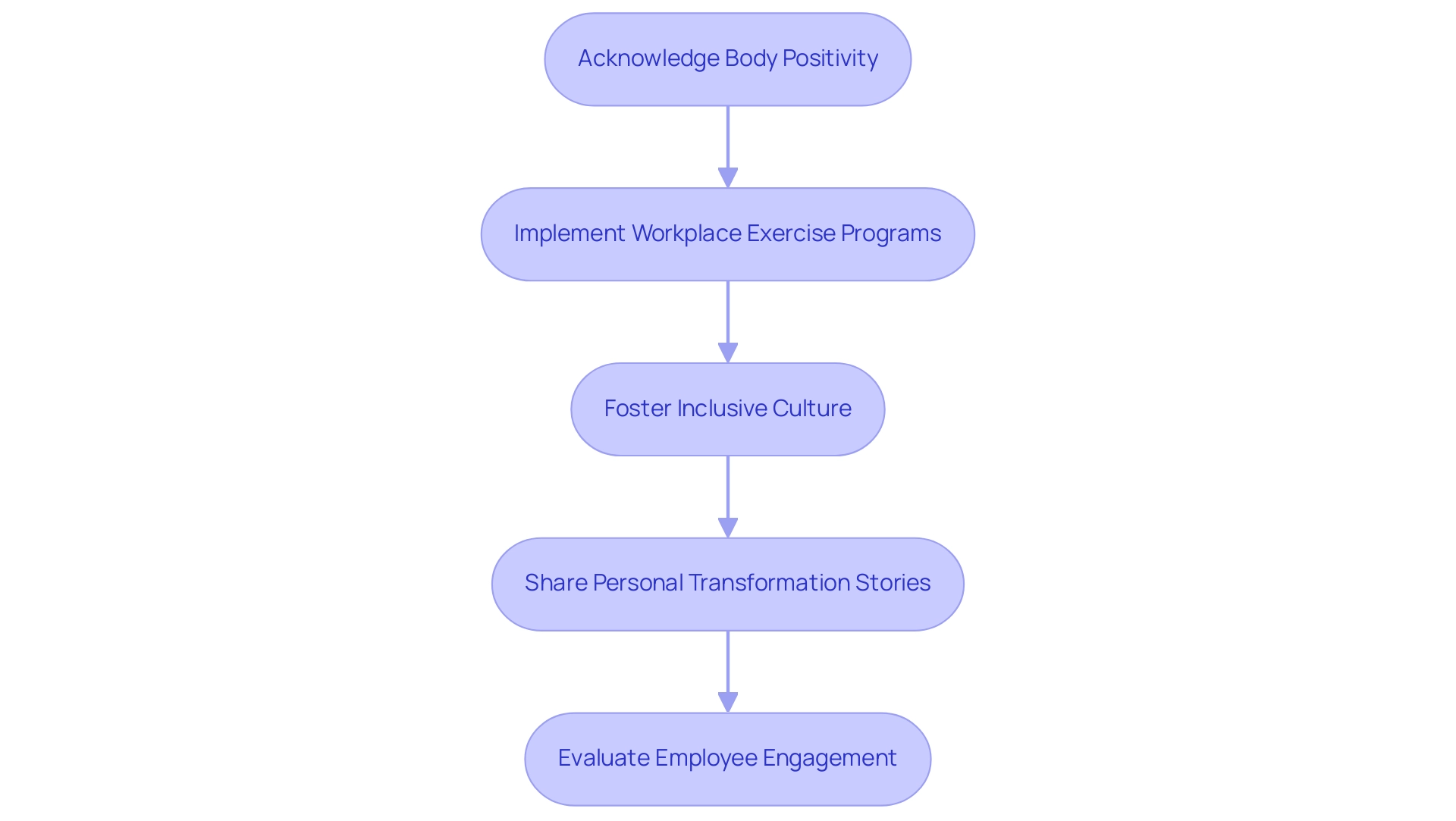
Conclusion
Understanding the complexities of body image, particularly the term "chubby woman belly," reveals the deep-rooted cultural perceptions and societal pressures that affect mental and emotional health. By recognizing the varied implications of body types, organizations can initiate more inclusive conversations that promote acceptance and well-being. Addressing the multifaceted causes of abdominal fat—ranging from dietary choices to stress—equips HR Benefits Managers with the knowledge to foster environments that encourage healthier lifestyles among their teams.
The health risks associated with excess belly fat are significant, but the positive outcomes of weight management extend beyond physical health. Improved body image and self-esteem can lead to better mental health, underscoring the importance of holistic approaches to wellness. By implementing comprehensive wellness programs that emphasize balanced nutrition and regular exercise, organizations can empower their employees to take control of their health.
Ultimately, embracing body positivity and fostering an inclusive workplace culture are key to promoting overall well-being. By prioritizing diverse body types and encouraging open dialogues about health, HR Benefits Managers can inspire transformative changes within their organizations. The journey toward a healthier, more accepting workplace starts with understanding and celebrating all body types, creating a supportive environment where everyone can thrive.




